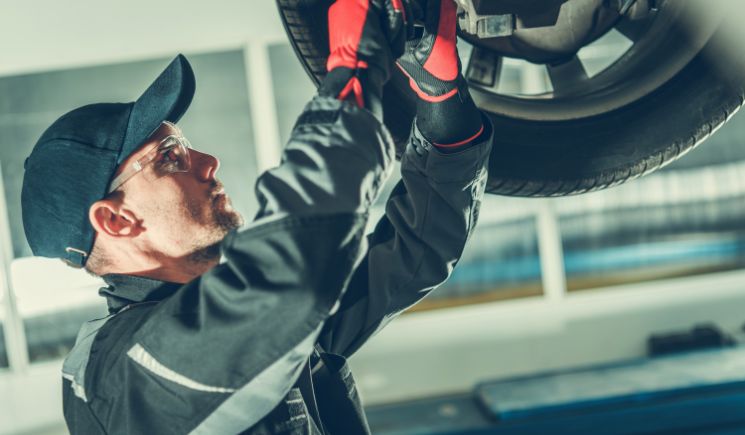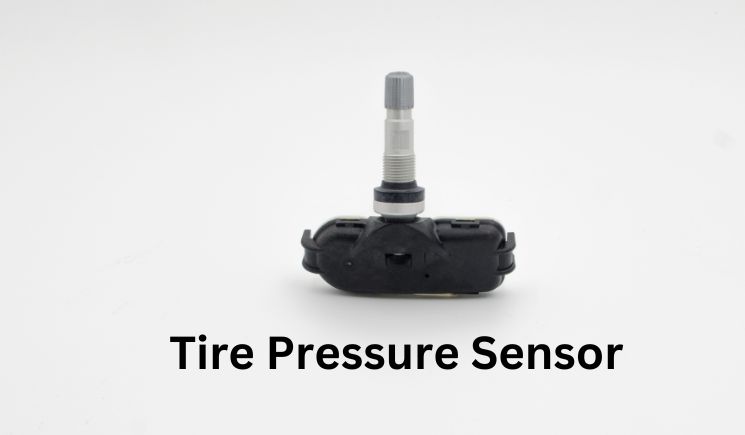Car Honks When Filling Tires

As a car mechanic, I know all too well the annoyance of having your tires filled with air only to be met with an unexpected honk. This disruptive noise can be caused by a variety of issues and it’s important to identify the source of the problem quickly so that you don’t have to put up with this annoying sound any longer than necessary.
In this article, we’ll discuss some common causes for car honks when filling tires and what you should do if this happens to you.
Table of Contents
- Why Does A Car Honk When Filling Tires?
- What Causes The Honk?
- How To Stop The Honk
- Troubleshooting Tips
- Preventative Measures
- Frequently Asked Questions
- What Type Of Cars Are Prone To Honking When Filling Tires?
- Is There A Specific Type Of Air Compressor That Is Known To Cause The Honking?
- How Long Does The Honking Usually Last?
- Is There Any Way To Turn Off The Honk Without Stopping The Tire Filling Process?
- Are There Any Health Or Safety Risks Associated With The Honking?
- Conclusion
Why Does A Car Honk When Filling Tires?
Driving down the highway, you may have noticed your car honking when filling up its tires. This strange noise can be disconcerting for drivers who don’t know why it’s happening. But don’t worry; this honk is nothing to be worried about.
As an automotive technician and car mechanic, I’m here to tell you that a car will always honk whenever it’s being filled with air – and there’s a good reason behind it.
When we fill a tire of any vehicle, the pressure inside increases rapidly due to the influx of air. The increased pressure causes the stem valve at the center of the wheel rim to expand outwardly which then triggers an actuator switch in the horn relay circuit located within the steering column or dash area that activates the horn.
In other words, as soon as enough air passes through the tire stem valve, it signals to activate your car’s horn as a warning sign. This sound serves as an important reminder; too much pressure can lead to damage on both wheels and cars, so make sure not to overfill them!
Now that you understand why your car makes such noises while being filled with air, let’s look into what causes these audible warnings.
What Causes The Honk?
The car honking when filling tires is an annoying problem that deserves attention.
To truly understand the issue, we have to take a closer look at what’s causing it.
At its core, the honk occurs because of air pressure sensors installed in cars and light trucks manufactured since 1996.
These sensors detect changes in tire pressure during inflation and then send a signal to the car’s computer triggering the horn or other sound system.
To prevent this from happening, you need to disable the feature by connecting your vehicle with an OBD-II scanner and disabling the sensor alerts from within the settings menu.
That way you can fill up your tires without any unwanted noise.
How To Stop The Honk
To stop the honk, there are a few things to check.
First and foremost is tire pressure. Check your owner’s manual for the recommended PSI to ensure that each tire has been filled properly. It’s also important to make sure you don’t overfill them; too much air can cause an issue as well.
Next, look at the valve stem caps on each tire. These should be tightened securely in order to keep the air from leaking out of the tires, which could lead to a situation where they need re-filling more often than necessary – thus leading to potential honking incidents. If these appear loose or worn down, consider replacing them altogether with new ones.
Finally, inspect any aftermarket equipment installed on your vehicle such as alarms or sensors that may be responsible for triggering false positives when filling up tires. Make sure all connections are secure and functioning correctly so they won’t be causing issues while trying to maintain proper tire pressure levels.
With these checks done, it’s time move onto troubleshooting tips for further maintenance needs.
Troubleshooting Tips
If the honking continues after filling your tires, there may be an underlying issue that requires further investigation. As a car mechanic or automotive technician, it’s important to troubleshoot any potential issues related to the honk from your vehicle.
The first step is to check for any obstructions near the tire sensor such as dirt and debris. If you find anything blocking the tire sensor, make sure to remove it carefully so as not to damage any of the components nearby.
Additionally, inspect the sound insulation in each wheel well for tears and holes which could cause excess noise when driving. You should also take a look at all four wheels for signs of wear and tear that could affect how much air pressure they are able to hold inside them.
Finally, if you have recently changed your tires or had them rotated, double-check that they were mounted properly on their respective rims. Make sure all bolts are tightened securely and ensure none of them have come loose over time.
Once everything checks out okay with the wheels, then it’s worth looking into other parts of your vehicle like starter motor or alternator problems – both can lead to excessive noises coming from under the hood while driving.
With these tips in mind, we can move onto preventative measures to help avoid this problem in future rides.
Preventative Measures
If you think filling up a car’s tires is as simple and straightforward process, think again! You may be surprised to know that honking could be involved.
While it’s not the most pleasant sound in the world, there are certain precautions you can take to prevent this from happening when filling your vehicle’s tires.
It turns out that if too much air pressure builds up inside a tire while its being filled, it will cause an audible “honk” noise–surprising many unsuspecting motorists!
To avoid having to listen to this unpleasant surprise, here are some helpful tips:
- Make sure the tire valve stem isn’t blocked or covered by dirt or debris
- Check for any sideways movement of the stem—if so, replace with a new one
- Always use a quality air compressor filter when inflating
By following these guidelines and taking preventive measures prior to filling your car’s tires, you’ll minimize the chances of hearing that dreaded ‘honk’ sound.
Don’t let unexpected surprises ruin your day – take action today and keep those ears safe!
Frequently Asked Questions
What Type Of Cars Are Prone To Honking When Filling Tires?
Most cars are equipped with a pressure sensor that will sound an alert when the tires become too full.
This typically manifests as a honking noise, which can be quite loud and startling.
That said, certain models of vehicles seem to be more prone to honking than others.
Older model Toyotas, for example, may have weaker sensors that trigger false alarms more easily.
If you know what type of car you’re dealing with before filling up the tires, this could help prevent any unwanted noise from occurring!
Is There A Specific Type Of Air Compressor That Is Known To Cause The Honking?
It’s like a game of musical chairs; you never know which specific type of air compressor is going to cause the honk.
But, it’s important for automotive technicians and car mechanics to be aware that some compressors can indeed make this sound when filling tires.
It’s an indication that the pressure in the tank is too high or there may be a valve issue.
So, if you’re dealing with a particularly noisy machine while working on your vehicle, take notice!
How Long Does The Honking Usually Last?
The honking usually doesn’t last very long. In most cases, it’ll only go on for a few seconds before stopping.
It can be pretty annoying though!
If you’re getting the honking noise when filling up your tires, chances are that something isn’t quite right with the air compressor you’re using.
Be sure to check it out and make sure everything is in working order so you won’t have to deal with that noise again.
Is There Any Way To Turn Off The Honk Without Stopping The Tire Filling Process?
When you fill up your tires with air, there is usually a honk that sounds when the pressure reaches its desired level.
If this honking sound is bothersome or unnecessary, it can be turned off without having to stop the tire-filling process.
All you have to do is locate the horn switch on the inflator and turn it off before beginning the filling process; once the horn switch has been switched off, no more loud noises will occur while your car’s tires are being filled.
Are There Any Health Or Safety Risks Associated With The Honking?
The honking associated with filling tires can be an annoyance, but more importantly it should not pose a health or safety risk.
As automotive technicians, we are well-versed in the proper procedures for filling a tire and have never encountered any harm coming to those nearby.
In fact, the sound of the horn is only necessary to indicate when enough air has been filled into the tire – so rest assured that there’s no need to worry while you’re having your car serviced!
Conclusion
Most car owners are familiar with the sound of their vehicle honking when filling tires.
Over time, this sound has become somewhat of an annoyance and many people want to know how they can get rid of it.
The truth is that while there may not be a definitive answer as to why some vehicles honk when filling tires, we do have insight into what causes it and ways in which you can reduce or stop it from occurring altogether.
By understanding the potential risks associated with the honking, checking for faulty parts on your air compressor, and using high-quality equipment for tire fillings, you should no longer need to worry about an unexpected honk interrupting your daily tasks.






